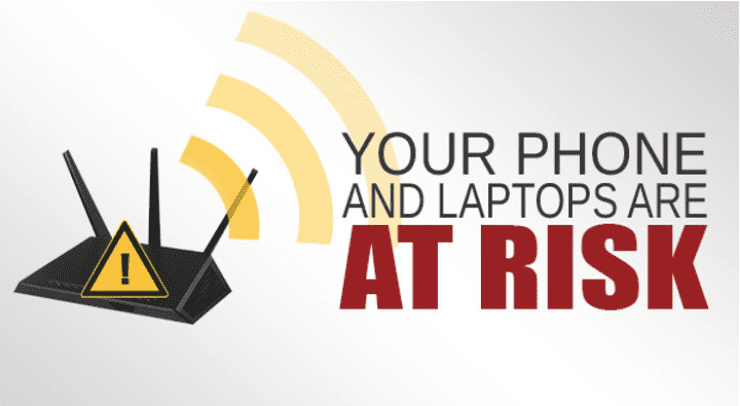A recently discovered WiFi security flaw can put your sensitive information at risk. Here are three ways to protect yourself in today's newsletter.
The invention of WiFi has been a science fiction dream come true. We can use our laptops anywhere in the house, our phones are using home internet instead of sucking down our cellular data, and our gadgets are all communicating. It's essentially the backbone of the smart tech boom for home and business alike. Most networks are password-protected with an encryption called "WPA2" and this has been safe and secure, until now.

Recently, a security flaw called KRACK was discovered that allows hackers to break into WiFi networks - even the secured ones. Your laptop, mobile phone, gaming console and even your smart fridge are possibly vulnerable as a result.
How KRACK works
The Key Reinstallation AttaCK isn't a problem with your device or how it was set up. It's a problem with the WiFi technology itself. The attack gets between your device and the access point (i.e. router) to reset the encryption key so hackers can view all network traffic in plain text. Since we rely on WiFi so much, this might mean hackers have a front row seat to your credit card numbers, passwords, chat messages, emails, photos and more.
Note: The hacker must be in the physical range of your WiFi to exploit this flaw, it doesn't work remotely like other attacks we've seen recently. Given most WiFi ranges extend well past your own home/business, this is small comfort, but important to know.
How to protect yourself
Run your updates: Software updates are being released which fix the flaw. Microsoft and Apple have already released one for their devices. Take a few minutes to make sure you're up to date and with all your patches on any device that uses WiFi (your smartphones, laptops, tablets, PCs, game consoles, etc.). Unfortunately, some devices may be slow to get an update, or if they're older, may not get an update to fix this issue at all. If possible, consider using a cabled connection on those older devices or upgrade to one with support.
Be very careful with public WiFi: While your local business center, library or school campus has expert IT professionals keep guard over your security, it's a very different matter at your local coffee shop. It's unlikely small locations such as this will be on top of security patches. Remember, a hacker exploiting this flaw only needs to be in the same WiFi area as you, so be careful you don't give them a dollop of private information with their coffee.
Check your browser security: Before sending anything secure over the internet, check you're using a HTTPS site. You'll know these by the little padlock you see next to the URL, and the address specifically begins with HTTPS. Major sites like Facebook, Gmail and financial institutions already use HTTPS.
Do you need help updating your devices or to regularly keep your devices updated with the latest updates and patches?
We can help! Contact us today!

